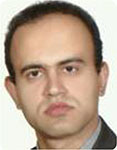Lowering the phase-trap damage in tight-gas reservoirs by using interfacial tension (IFT) reducers
Yangfan Lu A , Hassan Bahrami A , Mofazzal Hossain A , Ahmad Jamili B , Arshad Ahmed C and Chaolang Qiu AA Curtin University
B University of Oklahoma
C University Teknologi Petronas [UTP]
The APPEA Journal 53(1) 363-368 https://doi.org/10.1071/AJ12031
Published: 2013
Abstract
Tight-gas reservoirs have low permeability and significant damage. When drilling the tight formations, wellbore liquid invades the formation and increases water saturation of the near wellbore area and significantly deceases permeability of this area. Because of the invasion, the permeability of the invasion zone near the wellbore in tight-gas formations significantly decreases. This damage is mainly controlled by wettability and capillary pressure (Pc).
One of the methods to improve productivity of tight-gas reservoirs is to reduce IFT between formation gas and invaded water to remove phase trapping. The invasion of wellbore liquid into tight formations can damage permeability controlled by Pc and relative permeability curves. In the case of drilling by using a water-based mud, tight formations are sensitive to the invasion damage due to the high-critical water saturation and capillary pressures. Reducing the Pc is an effective way to increase the well productivity. Using the IFT reducers, Pc effect is reduced and trapped phase can be recovered; therefore, productivity of the TGS reservoirs can be increased significantly.
This study focuses on reducing phase-trapping damage in tight reservoirs by using reservoir simulation to examine the methods, such use of IFT reducers in water-based-drilled tight formations that can reduce Pc effect. The Pc and relative permeability curves are corrected based on the reduced IFT; they are then input to the reservoir simulation model to quantitatively understand how IFT reducers can help improve productivity of tight reservoirs.

Yangfan Lu is pursuing a master's degree in petroleum engineering at Curtin University. He holds a bachelor's degree in petroleum geology from China University of Petroleum. sniper8123@sina.com |

Hassan Bahrami is a PhD candidate in the Department of Petroleum Engineering, Curtin University, focused on tight-sand gas reservoirs’ damage and productivity. Prior to Curtin University, Hassan worked for Schlumberger Data and Consulting Services (DCS) as a borehole reservoir engineer (2003–9), and at Tehran Energy Consultants as a reservoir engineer (2001–3). Hassan holds a BSc in chemical engineering from Persian Gulf University and an MSc in reservoir engineering from Sharif University of Technology, Tehran, Iran. bahrami@postgrad.curtin.edu.au |

Mofazzal Hossain is a senior lecturer, postgraduate course coordinator, and SPE faculty advisor at the Department of Petroleum Engineering, Curtin University. He has more than 14 years of experience in teaching, research, and consultation, mainly in well technology and petroleum production technology. He has worked at the University of Adelaide, UNSW, Saudi Aramco, King Saud University, and Reservoir Engineering Research Institute. His research works encompass reservoir stimulation by hydraulic fracturing for improved production from unconventional tight/shale gas reservoirs, completion optimisation, rock fracture mechanics, and wellbore stability. His PhD in petroleum engineering is from UNSW. Member: SPE, Institute of Engineers Australia. md.hossain@curtin.edu.au |

Ahmad Jamili is an assistant professor at the Mewbourne School of Petroleum and School of Geological Engineering at the University of Oklahoma. He holds a PhD in petroleum engineering, and a MSc and BSc in chemical engineering. His research interests are compositional simulation, CO2-EOR, and naturally fractured reservoirs. ahmad.jamili@ou.edu |

Arshad Ahmed is an MSc candidate at the Department of Petroleum Engineering, University Teknologi PETRONAS (UTP), Malaysia. He is working on the formation damage of tight-gas reservoirs. In 2010–11, before his candidancy at UTP, Arshad worked in the Production Operation and Well Intervention Department at Pakistan Petroleum Limited (PPL). He holds a BEng in petroleum and natural gas engineering. arshad.lashari@live.com |

Chaolang Qiu is a master’s student from Curtin University majoring in petroleum engineering. Prior to enrolling in the master’s course at Curtin University he completed his bachelor’s degree in petroleum engineering at the University of Southwest Petroleum in China. His present focus is on the effect of hydraulic-fracture parameters on the welltest response of multi-fractured tight-gas reservoirs. chaolang.qiu@postgrad.curtin.edu.au |


